Hobart Council passes short stay accommodation recommendations
New short stay accommodation regulations in Hobart are a step closer to becoming a reality after four recommendations were passed in Hobart Council. THE CRACKDOWN >>
Tasmania
Don't miss out on the headlines from Tasmania. Followed categories will be added to My News.
New short stay accommodation regulations in Hobart are a step closer to becoming a reality, including prohibiting new permits being issued for entire homes in the Hobart municipality after four recommendations were passed on Monday.
The recommendations were outlined in a report on how regulations to the short stay accommodation market in Hobart could address the housing crisis.
At Monday’s general council meeting the recommendations were debated, including:
- Consider prohibiting entire home short stay accommodation in certain areas (passed 6-5)
- Advocate to the planning minister to stop new permits for entire home short stay accommodation in Hobart (passed 6-5)
- Push for statewide regulations “similar to those in NSW”(passed 7-4)
- Lobby the government to introduce a “housing supply forecasting council.” (passed unanimously)
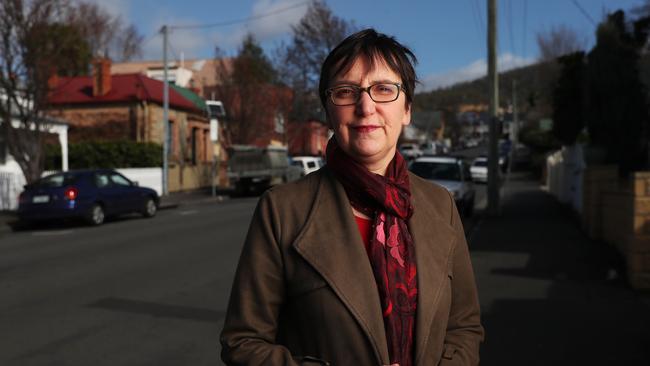
Councillor Helen Burnett said it was the responsibility of council to take action.
“We as a council have means and mechanisms by which we can reduce the conversion of rental properties to short stay accommodation in our municipalities,” Cr Burnett said.
“We know full well we have a low rental vacancy rate.
“That hasn’t shifted, we haven’t had an improvement.”
Cr Burnett said the time to act was now.
“I highly recommend we approve this recommendation, we act now rather than leaving it any longer.”
“It’s hitting people in all strata of income.”
Hobart Lord Mayor Anna Reynold urged councillors to vote in favor of the report.
“We’ve have evidence being provided to us by some of the most qualified professionals in the country and they have urged us to act,” Cr Reynold said.
“We have this expert advice, or we can follow the advice of PR people.”
Cr Reynolds said it would not affect anyone looking to rent out rooms, granny flats out their house when they go on holiday.
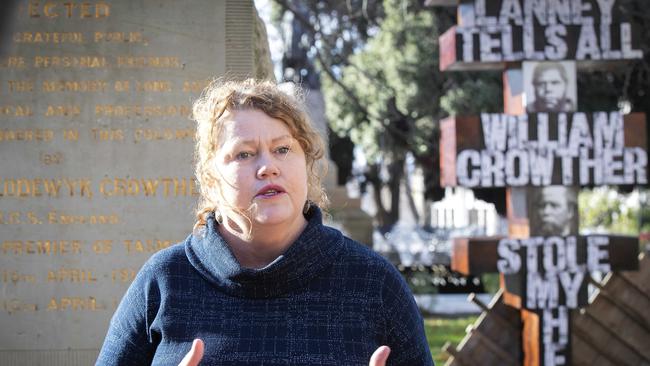
“This is not, reactive, these concerns have been raised for a long time,” Cr Reynolds said.
“Renters are looking for leadership and they’re sick of us twiddling our thumbs”
Ald Marti Zucco who revealed he had short stay accommodation listings said it was a “reactive approach”.
“Will this solve the housing problem, or will it create further problems for council?” Ald Zucco said.
Ald Simon Behrakis said he wasn’t convinced.
“There’s a number of reasons affecting affordability and to say it’s one is simplistic,” Cr Behrakis said.
“There’s the risk we have a two tier economy where some houses values are affected because they can never ever get a permit.”
The report’s recommendations had received support from Shelter Tasmania and City Mission which both agreed short stay accommodation displaced long term rentals from the housing market.
It’s also received backlash from short stay accommodation operators and the Tasmanian Residential Rental Property Owners Association which said Tasmanians should be able to choose what they do with their own properties.
Short-stay properties are ‘out of control’
TASMANIA cannot continue with a business as usual approach when it comes to short-stay accommodation, the head of the state’s peak body for housing and homelessness says.
Shelter Tasmania CEO Pattie Chugg said the organisation had been concerned about the ongoing housing crisis and effects of short-stay accommodation for some time.
“We know that increases in short-term accommodation can and do displace long-term rental properties from the housing market,” Ms Chugg said.
“We recognise that short-stay visitor accommodation is not the only driver of our current shortage of rental properties, but it is a key factor that needs to be carefully managed.”
The comments come after a report making four recommendations to tighten Hobart’s short-stay accommodation regulations were passed by the council’s planning committee.
The report, which will go before council on Monday, recommends lobbying the planning minister to prohibit new permits being issued for entire homes in Hobart.
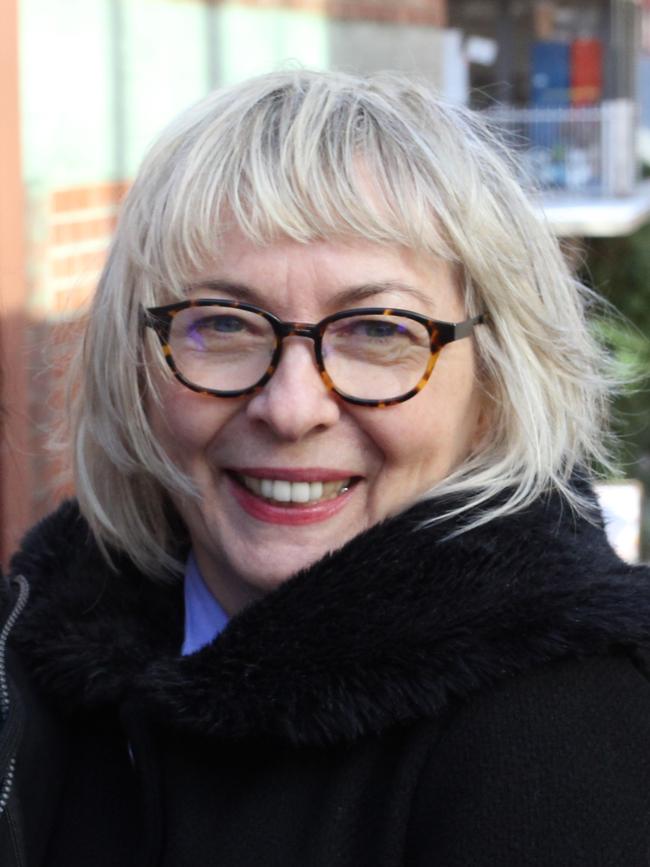
Ms Chugg said it would be a step in the right direction.
“The HCC’s comprehensive report’s recommendations make a lot of sense in this tight housing market,” she said.
“It is time to pause and reassess, to improve regulation and data capture, and plan for our future housing needs.
“With over 8000 Tasmanians living in housing stress and more than 1600 people experiencing homelessness, every extra house counts.”
Ms Chugg said it was the right time to take action.
“With a 0.6 per cent vacancy rate in Hobart, this report could not have come at a better time,” Ms Chugg said.
“Once our borders re-open we will see increased demand for tourist accommodation, so we need to plan now to meet future housing demand.”
However, in a Talking Point in Monday’s Mercury, Airbnb’s head of public policy Derek Nolan said proposals being considered by the council put local jobs at risk.
“What is particularly concerning is that attempts to rush such major proposals are being made without proper and considered analysis,” he said.
“Hobartians should be very concerned that their council appears willing to take a punt on a proposal that puts at risk jobs and local businesses that depend on short-stay guests – and yet isn’t based on credible evidence.”
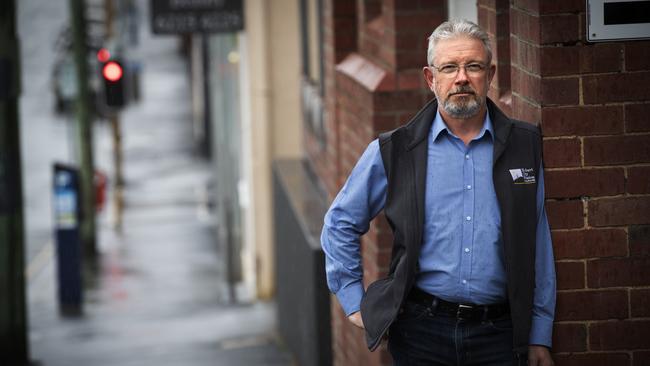
Hobart City Mission CEO John Stubley supported limiting the number of short-stay properties.
“Fundamentally, houses in suburbia weren’t intended as businesses,” Mr Stubley said.
“We’re increasingly seeing more families who are homeless because they can’t get a roof over their heads.
“We’ve had a mother with four children who stayed at Safe Space for three to four weeks because she wasn’t able to find a house to live.
“I think steps need to be taken to control and limit the number of properties coming out of the long-term market and going into the short-stay accommodation market – I believe it’s out of control.
“In this environment where we do have a housing crisis it doesn’t sit well to leave a family homeless to provide somewhere for a tourist to stay.”
Stayz lashes ‘misguided’ push for accommodation ban
Short stay accommodation company Stayz has labelled a push to prohibit new short stay accommodation licences from being issued for entire homes in Hobart as “misguided”.
A report which detailed four recommendations to tighten the rules around short stay accommodation in an effort to ease the housing crisis was passed by the Hobart Planning Committee earlier this week, to go before the Hobart council next Monday.
Stayz corporate affairs director Eacham Curry said the recommendations were based on “overstated figures about the holiday rental accommodation sector in Hobart.”
“Our analysis of the last available data from the Australian Bureau of Statistics and the State Government’s Short Stay Accommodation Report shows only 0.64 per cent of Greater Hobart-based dwellings are used as full-time holiday rentals,” Mr Eacham said.
“This is a far cry from the questionable stats bandied about by Hobart Council and others who should know better.”
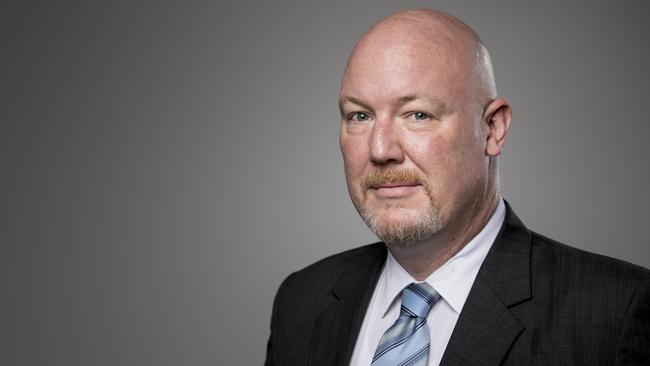
But a researcher from the Australian Housing Urban Research Institute said it’s not the council who is using questionable stats.
Professor Peter Phibbs said the company has confused greater Hobart figures with the Hobart municipality.
“Working out the ratio of full time holiday rentals for Greater Hobart isn’t relevant when we are talking about the Hobart City area which focuses on central Hobart,” Professor Phibbs said.
“Greater Hobart includes seven local government areas.”
Mr Eacham went on to say many holiday homes had never formed part of the long term housing stock.
“They are often purpose built as a holiday rental and rented out to holiday makers when not used by the families who ultimately own them,” Mr Eacham said.
“As a result, it is incorrect to assume that onerous restrictions will result in these family holiday homes magically appearing on the long-term rental market.”
That was another point Professor Phibbs disagreed with.
“I am not sure that the claim that Stayz makes that many short term rentals in Hobart City are purpose built as holiday homes is true,” he said.
“Whilst this is true in many parts of Tasmania, I suspect there aren’t many traditional holiday shacks in Hobart City.”
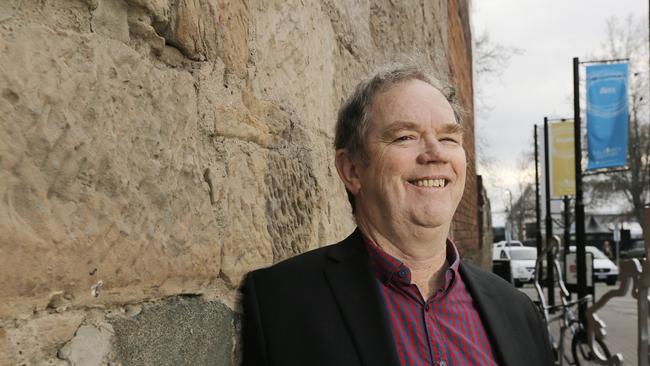
Professor Phibbs said the recommended measures would have an impact on the number of homes available in the rental market and also affect rental affordability.
“The vacancy rate in Hobart at the moment is less than one per cent, when that vacancy rate is low, that means rents keep going up,” Professor Phibbs said.
“One of the reasons we’ve got a low vacancy rate in Hobart is some Airbnb properties used to be in the rental market, they’re now in the short term market.
“In Covid we saw some properties went from the short stay market to rental market and what we saw in Hobart is prices went down nine per cent in the June quarter in 2020.”
‘It’s my money’: Home owner slams Airbnb crackdown
An Airbnb owner has slammed plans to crack down on short stay accommodation, insisting he should be able to do what he wants with his property.
Marius Engelbrecht owns the Trinity Hills Apartments in South Hobart, which is made up of five self-contained apartments.
Four are listed on Airbnb and one is currently housing a long term tenant.
“I worked hard to get that property and it should be my right to choose how I use that property, not the council,” Mr Engelbrecht said
“It’s my money, my assets and I should dictate how I use it.”
A report will go before the full council next week after it passed the planning committee on Monday, with four recommendations made including lobbying the planning minister to prohibit more licenses being issued.
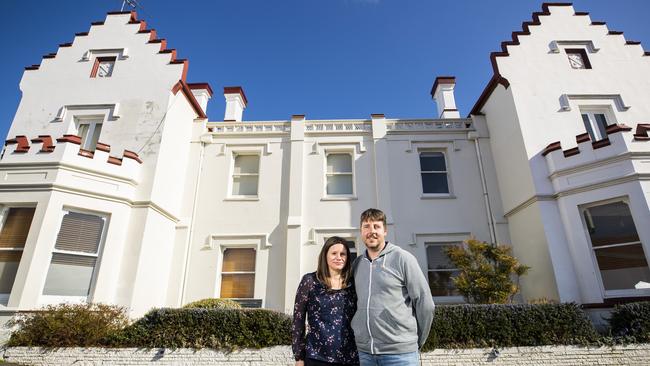
Mr Engelbrecht did not believe limiting the number of permits would address the housing crisis.
“For too long, the housing crisis has been using short term accommodation as a scapegoat,” he said.
“Why don’t they tell us how many houses they’ve built so far, I bet less houses have been built than permits issued for short term accommodation.
“They’re trying to kerb the problem but in the long run the problem has always been housing stock.
“It’s restricting the people who want to create a better life for themselves.”
Planning committee votes for short stay accommodation action
A report on the impact of Hobart’s short stay accommodation market and how potential amendments to the planning which could be made to address the housing crisis is set to go before the Hobart council at next week’s general meeting, after it was passed by the planning committee on Monday.
The report made four recommendations including:
- The council consider prohibiting short stay accommodation in specific areas,
- The council consider lobbying the planning minister to prohibit new permits being issued
- That the council consider statewide regulations “similar to those in NSW”
- The council consider lobbying the state government to form a “Housing Supply Forecasting Council”
The planning committee made some amendments to the recommendations before it goes to council, including the removal of the word “consider” from each recommendation.
Alderman Simon Behrakis was one member of the committee who voted against the report going before the council in its amended form.
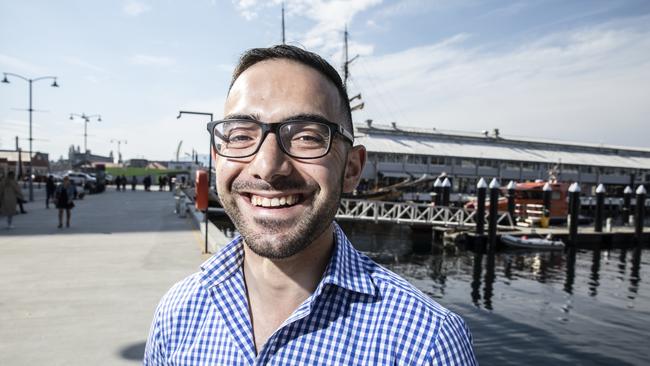
Ald Behrakis said the word “consider” needed to stay.
“In the report it says there a large number of complex issues that need to be looked into and we need to be careful about how we go about this,” Ald Behrakis said.
“There’s a lot of work that needs to be looked into, the amendment pushes ahead without consideration.”
Ald Behrakis questioned the fairness of some of the recommendations and said it would create a “two tier system”.
“If what’s being suggested is implemented, everyone with a permit is sitting on a gold mine,” he said.
“Then there are those without permits and those that can never get them.”
He said the council should focus more on approving housing developments.
“They voted against a housing development in the very same council meeting, “ Ald Behrakis said.
“We knocked back more houses than granted short stay permits.”
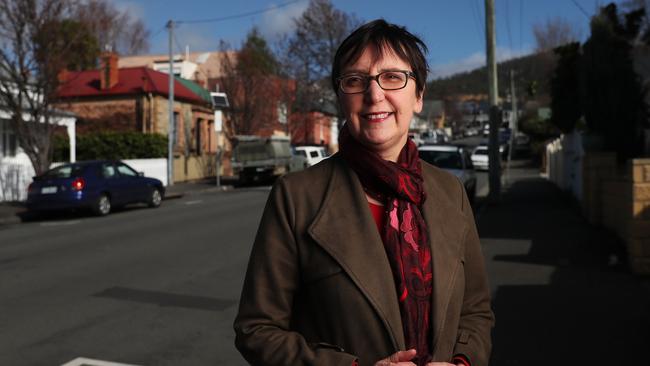
Planning Committee chair Helen Burnett said the amendments were made to act on the issue with urgency.
“Essentially the recommendation was for council to consider various things but Councillor Bill Harvey moved that council remove the word ‘consider’,” Cr Burnett said.
“The recommendation stays as it was but rather than considering, it says let’s get on with it.
“This is a serious problem and we need to use the levers available to us to solve some of these issues.”
Cr Burnett questioned the evidence of those claiming restricting permits wouldn’t help the ease the pressure on housing.
“Hobart has a higher density of Airbnbs as a proportion of the rental market at 12 per cent,” Cr Burnett said.
“There are too many people who are not getting the housing they deserve as their right and also we need to ensure we’ve got a good housing mix and good mix for various people.
“This is looking to use planning mechanisms, we have a responsibility as a council to address this issue.”
“It’s my money”: Property owner slams Hobart planning committee
An Airbnb owner has slammed plans to crack down on short stay accommodation, insisting he should be able to do what he wants with his property.
Marius Engelbrecht owns the Trinity Hills Apartments in South Hobart, which is made up of five self-contained apartments.
Four are listed on Airbnb and one is currently housing a long term tenant.
“I worked hard to get that property and it should be my right to choose how I use that property, not the council,” Mr Engelbrecht said
“It’s my money, my assets and I should dictate how I use it.”
A report will go before the full council next week after it passed the planning committee on Monday, with four recommendations made including lobbying the planning minister to prohibit more licenses being issued.

Mr Engelbrecht did not believe limiting the number of permits would address the housing crisis.
“For too long, the housing crisis has been using short term accommodation as a scapegoat,” he said.
“Why don’t they tell us how many houses they’ve built so far, I bet less houses have been built than permits issued for short term accommodation.
“They’re trying to kerb the problem but in the long run the problem has always been housing stock.
“It’s restricting the people who want to create a better life for themselves.”
Why Hobart Airbnb crackdown ‘won’t bring down rent’
A CRACKDOWN on short-stay accommodation which would prohibit entire homes from being used and even a ban on new entire-home short-stay permits is being considered by the Hobart City Council.
A report to Monday’s planning committee suggests changes to the planning scheme and urging the planning minister to prohibit new permits.
The report said there were potential advantages to short stay accommodation, such as drawing visitors to spend in neighbourhoods outside tourist centres.
But it also said the accommodation could increase housing costs, have impacts on noise, traffic and parking and create socially fragmented neighbourhoods.
Planning Committee Chair Helen Burnet said the rental market was very tight.
“We’ve just come off the back of homelessness week,” Cr Burnet said.
“We know there’s a bigger problem with people falling through the cracks.
“This is the opportunity for council to work through some problems.”
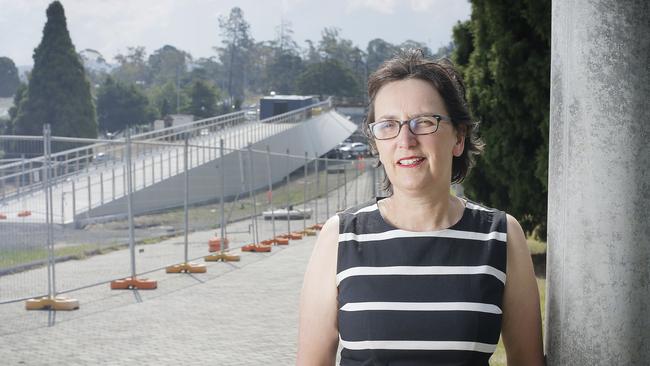
The report recommended council:
- Consider prohibiting entire home short stay accommodation in certain areas
- Advocate to the planning minister to stop new permits for entire home short stay accommodation in Hobart.
- Push for statewide regulations “similar to those in NSW”.
- Lobby the government to introduce a “housing supply forecasting council.”
“Obviously short stay accommodation is seen to be problematic as we have one of the highest uptakes in Australia,” Cr Burnet said.
“The report was looking at what options there are through planning mechanisms.”
Cr Burnet said there was no simple solution to the problem.
“There are a number of recommendations that will be discussed but the recommendations go to the heart, as this as quite a wicked problem,” she said.
Cr Burnet said whole houses in Battery Point were not allowed to be used as short stay accommodation and that the measure could be explored elsewhere.
“The recommendations are around having specific area plans so that’s something that could be considered,” Cr Burnet said.
“Rental accommodation in our city is not getting any easier. There has to be the pulling of these different levers to ensure we do get better outcomes for people.”
“We need more data from Airbnb and Stayz, we need to look at if it’s a cap on the number of houses or saying it’s not appropriate in this a part of the city.”
But the thought of tightening regulations has left a sour taste in the mouths of some Airbnb owners.
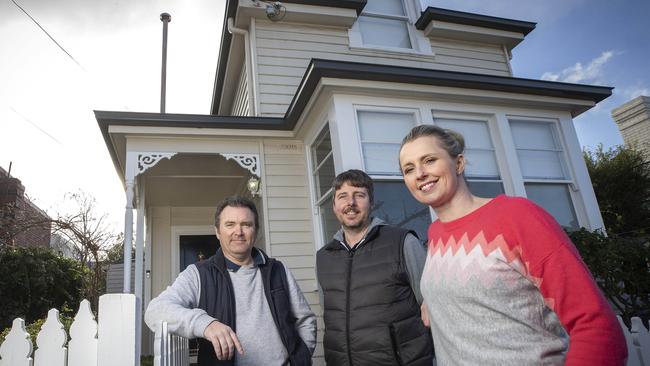
“My overall view on it is the person who owns the property should be able to decide how they use the property,” President of the Tasmanian Residential Rental Property Owners Association and Airbnb operator Louise Elliott said.
“Airbnb brings a lot of benefits to the community, it brings more traffic to local restaurants and cafes.
“It’s a unique offering, people can have a much different experience.”
Ms Elliott did not believe putting caps on short stay accommodation would assist with the housing crisis.
“Airbnb is a scapegoat when the truth is we have a housing shortage which has been compounding over several years,” Ms Elliott said.
“Putting a cap on Airbnb would be a drop in the ocean compared to actual changes.
“I would bet it would not bring rents down.”
The report went before the City Planning Committee on Monday and will go before the full council next week.



